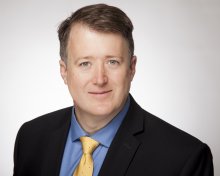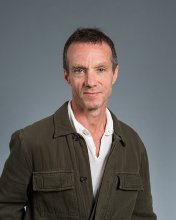Cybersecurity experts are relying more on the expertise of data scientists, who can analyze data related to major security breaches, enabling them to manage events and help mitigate future threats. At the same time, data scientists often create enormous data sets that become targets for major cybersecurity attacks. How can we strike the right balance between the upside and downside risks associated with the massive — and valuable — data sets that we’ll be creating and using?
Data Science and Cybersecurity: A Two-Way Street
Jane Allen is a PwC Forensic Technology Principal based in Northern California, and the West Coast Information Risk Management practice leader. For nearly 20 years, she has focused on legal and regulatory response matters, including internal investigations, cyber breach response, insider data exfiltration matters, eDiscovery, data analytics to support investigative matters, and other crisis-related response matters.
Additionally, Jane spends significant time advising clients on proactive, risk-based approaches to mitigate and better prepare for cyber, eDiscovery, and other regulatory response matters within the information risk management practice services. This includes assessing and implementing strategic information governance programs that help to manage all corporate information assets, in addition to aligning privacy, cyber security, eDiscovery, records retention, and operational risk management initiatives. Holistic approaches include designing executive governance council charters, policies and procedures, transformative technology design and implementation, and change management.
She has significant global and cross-border expertise. Primary industries served include utilities & energy, technology, pharmaceutical/life sciences, and retail & consumer. She frequently speaks at conferences and events on topics such as information governance/information risk management, cyber investigations, and data quality.
Nick is an Air Force Reserves Officer with US Cyber Command's Point of Partnership Team which is located at the Defense Innovation Unit Experimental (DIUx) at Moffett Field in Silicon Valley. He is also the Founder and CEO of POLCO.us, a policy crowdsourcing and political data analytics company. Previously Nick has worked as a Senior Economist for Amazon, Assistant Professor of Economics and Operations Research at the Air Force Academy, and as a Senior Economist on the President's Council of Economic Advisors focusing on cyber security, finance, and innovation policies. Nick holds a PhD from University of Texas Austin in Economics with a focus in Game Theory and Econometrics applied to politics, and undergraduate degrees in Math and Physics from the University of Notre Dame.
Steve Weber is the Faculty Director for the Berkeley Center for Long Term Cybersecurity (CLTC). He works at the intersection of technology markets, intellectual property regimes and international politics. His research, teaching and advisory work focus on the political economy of knowledge-intensive industries, with special attention to health care, information technology, software and global political economy issues relating to competitiveness. Weber went to medical school then did his Ph.D. in political science, both at Stanford. He served as special consultant to the president of the European Bank for Reconstruction and Development and was Director of the Institute of International Studies at UC Berkeley from 2003 to 2009. His books include The Success of Open Source.




